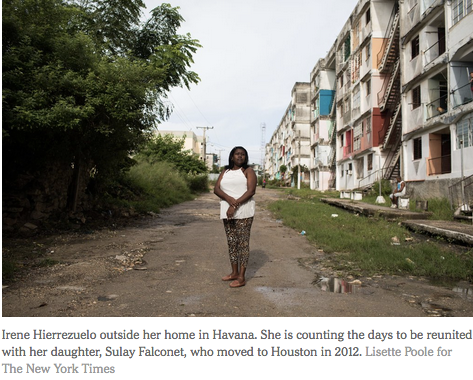Cubans have long regarded emigrating to the United States as something of a birthright derived from the privations they endured as a result of sanctions that Washington has imposed on Cuba for decades.
Last week, for the first time in decades, the United States effectively shut down the immigration pipeline from the island as it sharply reduced its staff at the embassy in Havana in response to mysterious ailments there, leaving in limbo more than 100,000 Cubans, most of whom are seeking to reunite with relatives.
The decision to indefinitely suspend visa processing at the embassy — one of the busiest consular posts in the region — could mean that the United States will fail to honor its obligations under a 1994 deal that requires the admission of at least 20,000 Cuban immigrants a year, current and former American diplomats say. The accord was reached in an effort to stem an exodus by Cubans who took to the seas in rafts by the thousands in the 1990s trying to reach Florida.
The halt in visa services comes roughly nine months after Washington ended its “wet foot, dry foot” policy. That policy, which required Cubans caught trying to reach the United States by sea to return home but allowed those who make it onto American soil to stay, had in recent years enabled an additional tens of thousands of Cubans to move to the United States.




